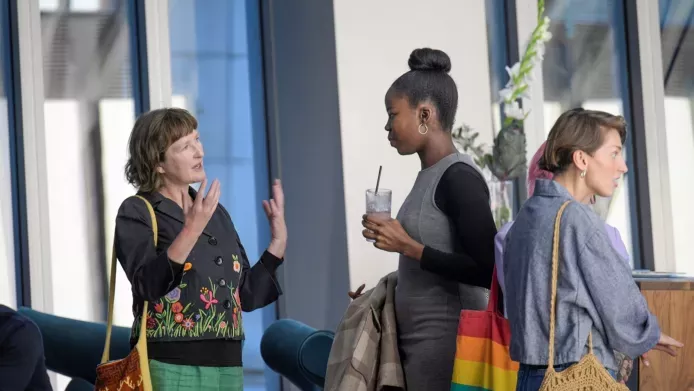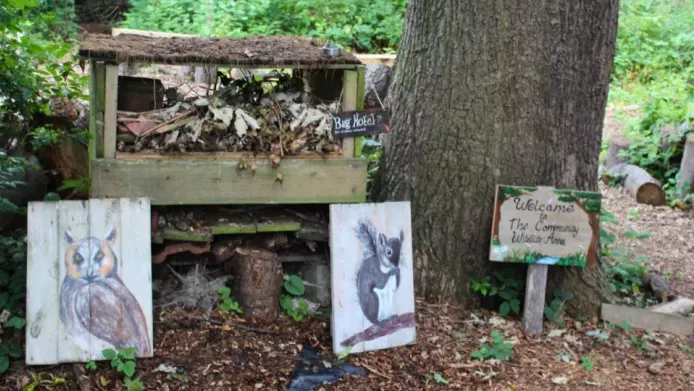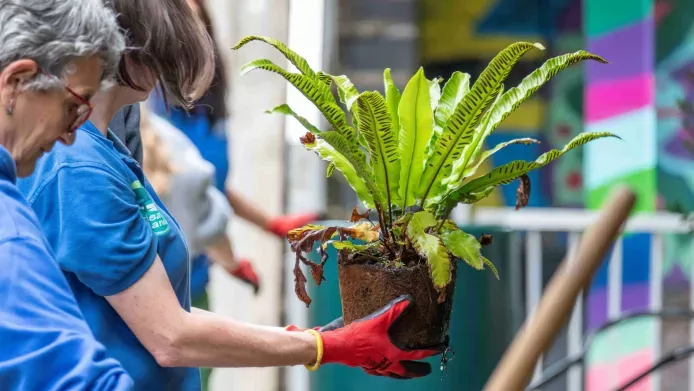Grow Wild’s Community Programme awards groups across the UK with £2000 grants to transform urban spaces for the benefit of people and wildlife through planting and championing UK native plants.
This opportunity is more than just a grant - we’re seeking groups who will actively engage with the programme, including bespoke online training and peer support facilitated by Grow Wild.
Please read this guidance page carefully before you apply to join the Grow Wild Community Programme.
Non profit organisations such as:
- voluntary, youth and community groups
- resident’s groups
- community associations
- health authorities and health boards
Unfortunately we can't fund:
- schools - look out for our Youth Projects launching early 2024
- local authorities - but we can fund projects led by independent groups on local authority land
- sole traders or individuals
- projects where Grow Wild funds could be used for commercial benefit
- organisations and projects outside of the UK
Grow Wild can only fund projects in urban locations.
Grow Wild can’t support projects delivered in rural, conservation or protected areas such as SSSIs. Grow Wild also can't fund projects requiring planning permission, due to the programme timelines.
As a guide, rural locations can be defined as settlements with less than 10,000 inhabitants.
If you are unsure whether your group or project idea is eligible for a grant, please email hellogrowwild@kew.org or call Grow Wild on 07824 104 632 for advice.
1. Two members of staff or volunteers who can liaise with Grow Wild:
- A lead contact - The person responsible for delivery of the project and main point of contact for Grow Wild.
- A secondary contact - Ideally someone in a senior position and financially accountable, e.g a trustee or director.
- Contacts need to be aged 18 or over and can’t be related to each other, through any family connection.
2. A bank account, in the group's name.
- Grow Wild will need evidence of this before the grant can be transferred.
3. Landowner permission.
- Where your project idea involves transforming a space or carrying out activity on land that doesn’t belong to you, you’ll need permission from the landowner.
- We’ll ask you to provide evidence of this permission when you apply. This can be in the form of a letter or email from the landowner, you'll be prompted to upload a copy of this when you complete the application form.
4. An up-to-date constitution, or equivalent governance document.
- The document should outline the group's purpose, aims and objectives.
- The document should be agreed and signed by the group’s board.
5. Policies and procedures in place to ensure groups can complete their project safely and responsibly, including:
- An equal opportunities policy
- Safeguarding policy and procedures for children and vulnerable adults (required within the application)
- A health and safety policy
- Volunteering guidelines (if appropriate)
- Public liability insurance (appropriate for the project activities)
Please note: Grow Wild may ask to see the above policies, during the application stage and throughout the programme.
Grants will be allocated to projects which best meet all of the following criteria:
Projects that will deliver planting / growing activities, with a focus on UK native plants and enhancing local biodiversity.
- You can also use your grant to engage people in your project through workshops, events and learning activities, but growing should be at the project's core.
- Projects should encourage nature to thrive, having a positive impact for pollinating insects, birds and other wildlife.
Projects that will transform an urban space.
- Spaces could be a single location, such as a community centre garden or multiple smaller locations that are connected through the group's activity.
Projects that will involve and benefit the local community.
- Projects should have the potential to reach at least 300 people.
Projects led by groups who care about the environment and will use sustainable materials and practices.
- Grow Wild asks all successful groups to only buy peat-free compost.
Projects that will work with one or more of Grow Wild’s target audiences:
- Young people (aged 12-25)
- People experiencing disadvantage or reduced access to services
- People who are less engaged with others in their local community
- People who face barriers to connecting with nature
- Disabled people
Projects that can be comfortably completed within the programme timeline.
- Successful applicants will receive their grant in April 2024.
- The grant needs to be spent by the end of October 2024.
A grant from Grow Wild can be used to pay for all project specific costs and activities.
- This may include seeds, plants, soil, materials, events, workshop charges, specialist experts and contractor costs.
- The grant can’t be used to buy items that are not directly related to the project.
- Avoid budgets that only pay for physical infrastructure, include costs you'll need to cover for getting local people involved.
Applicants can allocate up to £500 of the Grow Wild grant towards staff costs related to direct delivery of project activities.
- This can include workshop preparation and delivery, volunteer support, practical sessions.
- Grow Wild grants can’t be used to cover core organisational or staff costs that are not directly related to the project delivery.
Grants can be used to pay for individuals not employed by the group or partner organisations to deliver project activities.
- Their activity must be relevant to the project aims and planned outcomes
- This could include help with technical aspects e.g. specific site conditions, soils, plant identification, landscaping or construction techniques.
Match funding is not requested or scored as part of your group’s application.
- If you have other funding for related projects taking place in the same space, tell Grow Wild about it in your application.
- Grow Wild expects that the project described in the application can be comfortably delivered with the Grow Wild grant, independently from other funding.
Grow Wild is looking for groups who are keen to engage with all aspects of the programme. This will include:
Letting Grow Wild know how your project is going.
- Keeping in touch and sharing photos of your project in action
- Completing simple evaluation surveys, to help Grow Wild measure the impact of the Community Programme.
Attending Grow Wild’s online training, to connect and share experiences.
- Project leaders should be able to commit to approximately two-three hours per month between April-October 2024.
- Follow up activities for groups to try could include pollinator counts and nature surveys.
- Sessions are usually held on weekdays or evenings, and we will aim to find times that will work for the majority.
Supporting Grow Wild to create a case study about your group's activity.
- Grow Wild may ask to visit your project during the summer, to take photos and talk to group participants.
- Information gathered during visits will be used to build case studies to share with Grow Wild's wider audience and programme funders.
When planning your project, it's important to consider any risks involved and make sure you can keep people safe.
- The health and safety of everyone connected with your project should be considered.
- You must have appropriate risk assessments in place for your activities.
- You must also have an appropriate safeguarding policy and procedures in place, to protect people under the age of 18 and any vulnerable adults involved with your project.
- Ensure your group has public liability insurance in place for your activities.
Make sure you are aware of any hazards within your project space.
It’s the responsibility of your group to research and understand the space you plan to transform, making sure it is safe and suitable for planned activities.
This includes:
- Knowing the location of underground services, such as cables or pipes if you will be digging. On request local utility companies can supply maps showing the location of their equipment, there is sometimes a fee for this service.
- Being aware of antisocial behaviour local to the project.
- Checking for the presence of hazardous litter like broken glass or drug paraphernalia.
If in doubt, talk this all through carefully with the landowner.
Engage with people local to your project.
- Before applying for a grant, check that your planned activities will not have an adverse effect on how a communal space is used or experienced by other stakeholders. People might have great ideas to help make your project even better
If your application is successful, the Grow Wild team will be on hand to provide general project support and help with any queries you might have about your grant.
Grow Wild will also provide a programme of online talks and training, and be connecting groups to encourage peer to peer support.
It’s important to note that the Grow Wild team won’t be able to advise you with any technical or day-to-day aspects of delivering your project. For example, questions about specific site conditions, soils, plant identification, landscaping or construction techniques.
For this sort of help, we ask you to approach local experts. Either knowledgeable individuals known to your group or local organisations, with the skills you need. This may be given freely, or you can use a proportion of your grant to pay for this help.
In the application form we ask you to tell us about any partner groups, organisations or individuals who will help make your project a success.
Useful sources for finding support and information include:
- Local conservation/environmental organisations
- Local horticultural groups
- UK native seed and plant suppliers
- Online references such as: The Grow Wild website, The Wildlife Trusts, Royal Horticultural Society Plant Selector
For your application, you will need to prepare an 'elevator pitch', a 5-minute video telling us about your proposed project.
You will also need to fill out our timeline and budget template to upload into the application form.
For further details on the above, please read the Application Checklist on the apply page.
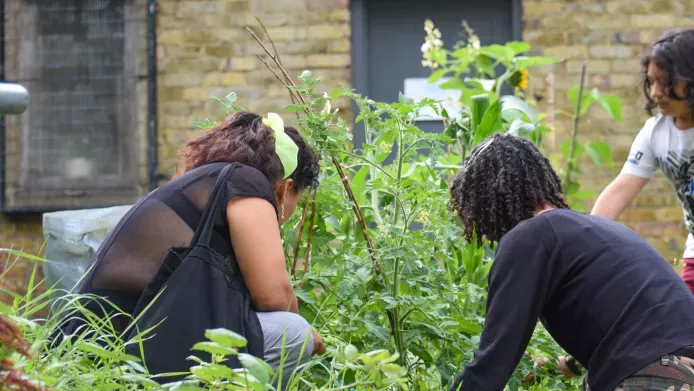
Community Programme
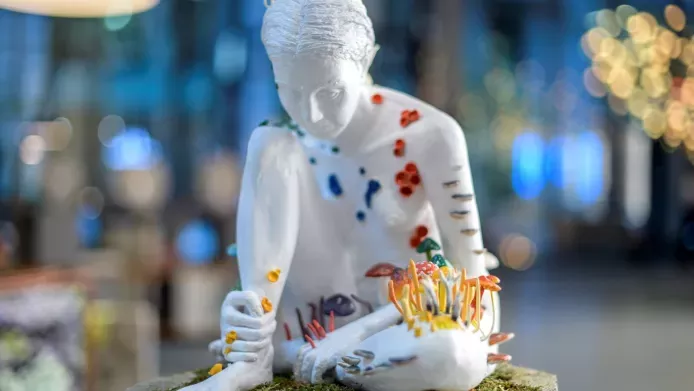
Previous projects
